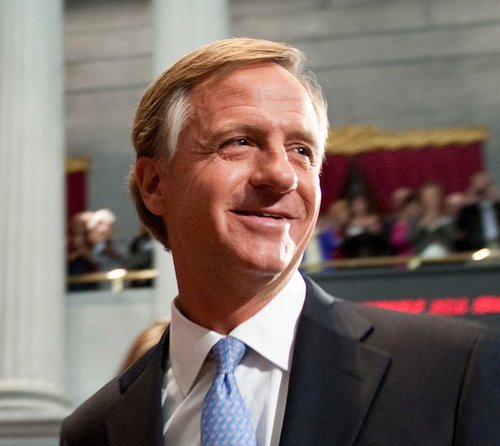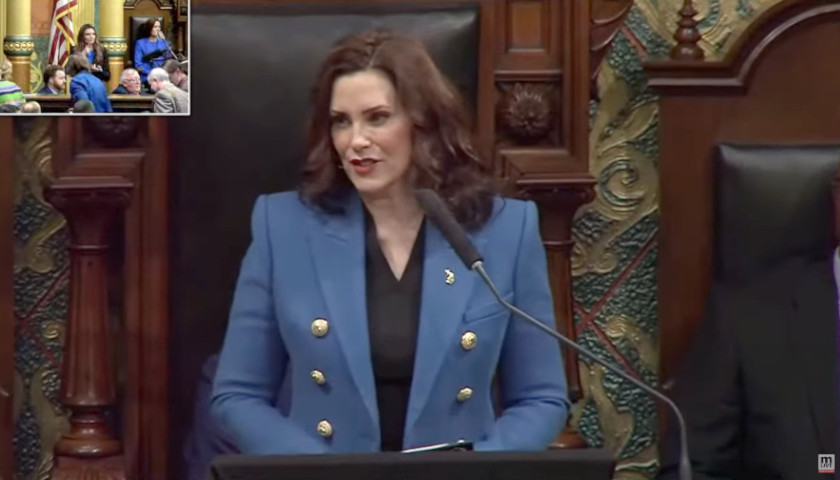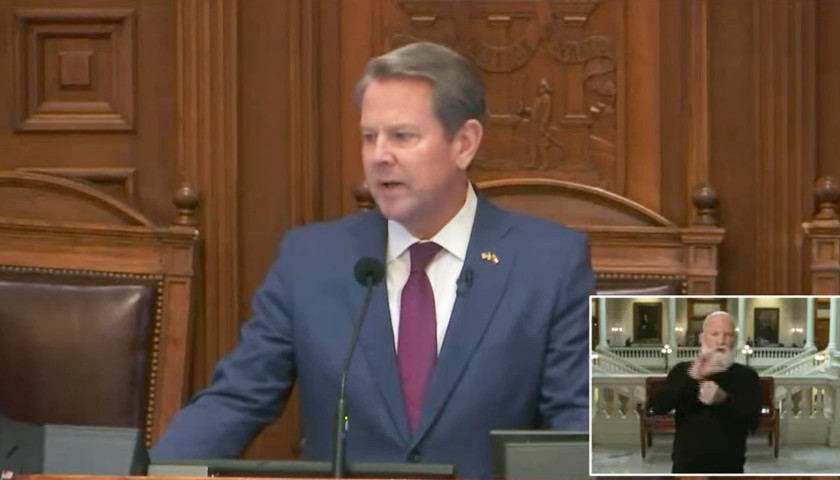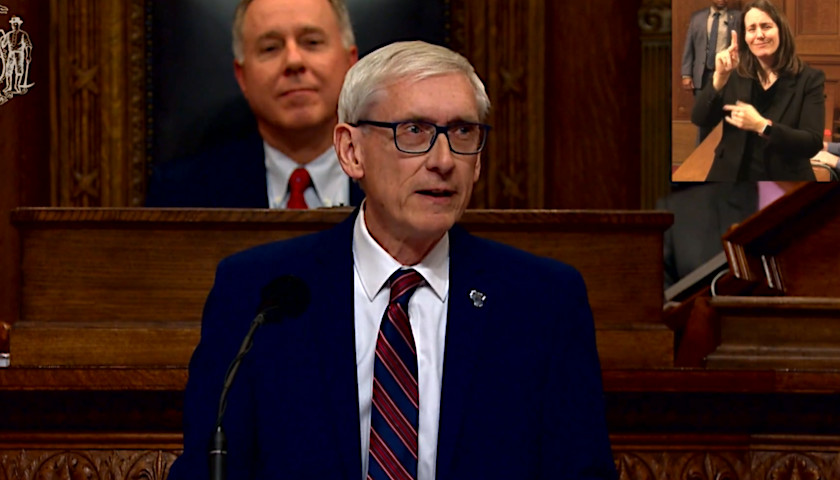Gov. Haslam dedicated about one-third of his State of the State address, delivered to the General Assembly on January 30, to his gas tax proposal.
Haslam refers to his proposal using the acronym in the bill that includes the details: the IMPROVE Act (Improving Manufacturing, Public Roads and Opportunities for a Vibrant Economy).
You can read the complete text of the address here:
Here’s the full excerpt of the address related to gas tax proposal, with emphasis added by The Tennessee Star:
With the IMPROVE Act we’re proposing to increase the gas tax 7 cents and the diesel tax 12 cents per gallon, and all new revenue goes only to address our transportation needs. The legislation will mean 962 projects in all 95 counties, both urban and rural. It will also mean 78 million dollars annually in increased revenue for counties and 39 million dollars annually in increased revenue for our cities. Scores of mayors across Tennessee – cities and counties, rural and urban – have told me that, if we don’t do something to address the fuel tax, they will have no alternative but to raise the property tax in their municipalities.
I know some of you think we should transfer surplus money to the Highway Fund for transportation. We are – to the tune of $277 million in last year’s and this year’s budget combined.
There are four real reasons why that’s not a long-term solution.
First, while we do have a surplus, we do not have a pile of money without a claim to it – as I mentioned earlier.
Second, I have never thought that it was a good plan to pay for a long-term need like $10.5 billion in approved and needed road projects with a short-term surplus.
Third, and the most fundamental, in my proposal an estimated half or more of the increased revenue would come from non-Tennesseans and trucking companies. I don’t know why we would take General Fund dollars, which are mostly collected from Tennesseans for Tennesseans, and use that to subsidize our roads, which are paid for by a broad mix of in-state and out-of-state users.
Finally, paying money out of our surplus would continue to leave our cities and counties with an inadequate source of revenue for taking care of our neighborhood and local roads.
I know that some of you have said that you’re never going to hit the green button for any kind of tax increase. I understand. I would rather not address this either. I would rather be known as the governor who worked with the General Assembly to cut $500 million in taxes, brought our debt to record low levels and introduced the Tennessee Promise. But imagine what kind of Tennessee we would be if two different governors and two different General Assemblies did not have the foresight to address our infrastructure needs back in the 80s. Without them, many of the roads we now take for granted and hundreds of thousands of jobs wouldn’t be here.
Earlier I mentioned that Tennessee has the lowest taxes in the nation as a percentage of personal income. If the IMPROVE Act goes into law, we would still have the lowest taxes in the nation. Today, we benefit from the decisions made and hard votes taken by those who came before us, and I am hoping we can make the same commitment to our children and grandchildren to deliver the infrastructure they need to pursue economic opportunity and high quality lives.
I have also heard many of you say that any movement in the gas tax would have to be accompanied by relative revenue neutrality. If you believe that, I would argue that there will rarely be as good a chance for us to do that as we have before us right now.
The IMPROVE Act includes tax cuts targeted toward the franchise and excise taxes of our manufacturers.
While we take great pride in paying the lowest amount of tax as a percentage of income in the country as individuals, unfortunately that’s not true for our business taxes. We are the third highest in the country in business taxes as a percentage of income and as a percentage of our budget. This tax cut of $113 million annually makes Tennessee more competitive as we’re out recruiting jobs to locate or expand here in state. Why are we targeting manufacturers with this tax cut? Because they are the firms that in addition to their own jobs, bring a long trail of supplier jobs with them.
The average manufacturing job creates an additional three jobs out of their supplier ranks. Just this morning I had a conversation with a major manufacturer who was looking to locate in one of our rural areas in Tennessee. The good news is we’re one of two finalists for the location. The challenging news is they think they will pay more if they locate in Tennessee, and they’re weighing their decision. I wish I could say that’s the only conversation like that I’ve had, but that is at least the fifth time that has come up in a recruitment conversation in the last four months. I am confident this tax cut will mean more jobs for Tennesseans in the future.
I am also proposing we cut the tax on groceries from 5 percent to 4.5 percent, which in addition to the half percent we cut several years ago, would mean a full percentage cut in the grocery tax since 2012. This new cut would save Tennesseans $55 million annually on their grocery bills, for a total of more than $100 million since we came into office.
Finally, I am proposing funding the cuts in the Hall income tax. As you all know, the Hall is statutorily required to be eliminated by 2022, but it is one thing to eliminate a tax in a bill. It is entirely different thing to actually take that revenue out of the budget. The IMPROVE Act accelerates that while we have the funds in the budget to address this. Those cuts will mean an additional $102 million in tax cuts during this General Assembly. In total, if this is approved, the General Assembly and this governor will have cut $540 million in annual taxes out of the budget since 2011. Let me repeat that: we will have cut $540 million in annual taxes since 2011. For the sake of reference, this is nine times more than the highest amount ever cut by a General Assembly and a governor in the history of the state. And with the approval of the base reductions in this budget, we will have cut $550 million in on-going expenses from the state budget over the last seven years. We’ve reduced the cost of government, and ’re returning those dollars in tax cuts.






[…] over two days, January 31 to February 1, in the immediate aftermath of Haslam’s January 30 State of the State address in which he released details of his proposed gas tax, which are included in a bill called the […]
[…] his fellow panelists and studio audience at the WWTN Gas Tax Town Hall on Thursday that he favors Gov. Haslam’s 7 cents per gallon gas tax increase, but opposes the part of governor’s proposal that would index the tax for future annual […]